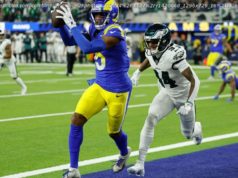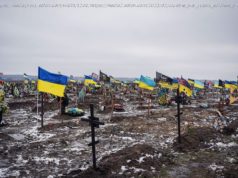Inspired by the 1963 team, the present Ramblers are ready to make a tournament run of their own.
Jerry Harkness remembers the moment his team first made history. It wasn’t in the NCAA Tournament but months before on a court in Oklahoma City.
In the championship game of the Oklahoma City Tournament against Wyoming, starting guard John Egan was thrown out. Sophomore guard, Pablo Robertson from the Bronx was the next man up. Robertson was black.
He joined Harkness, Les Hunter, Vic Rouse and Ron Miller on the court and these five led the Ramblers to a 93-82 victory against Wyoming.
“We didn’t think anything of it while we were on the court,” Harkness said. “But it was the first time in the history of Division I basketball that five black ballplayers were on the court together.”
They won the tournament and later that season would go on to win the NCAA championship, Illinois’ first and only national title. They did it all breaking the unwritten rule that a team would not play more than two black players at one time.
George Ireland ignored that rule by starting Harkness, Hunter, Rouse and Miller all season. The reason it worked, Harkness said, is because they won.
“You can’t argue with success,” he said.
That game against Wyoming didn’t get the same attention as the Game of Change or the national-title game did. It was a moment, though, that contributed in laying the foundation for this program. It’s a foundation current coach Porter Moser says is marked by high-character players.
“They overcame so much adversity and believed in each other,” Moser said. “That’s so much of how you want to build a program.”
Loyola is 55 years removed from that historic season and 33 years after the 1985 team reached the Sweet 16. The Ramblers are dancing again and they didn’t have to go far to find inspiration.
For most of the team, it wasn’t until they joined Loyola’s program that they even heard of the 1963 team and what it accomplished, but it’s those stories that they are turning to now.
Their tournament berth has created buzz around the Chicago area, but it’s also sparking memories about that historic season.
Moser is proud of his team for several reasons but one specific point of pride is that his team has the country back talking about what the 1963 Ramblers did to create change.
Harkness said the most challenging city his team visited was Houston. He recalls experiencing discrimination throughout the south. In New Orleans, the team was split into separate hotels and buses along racial lines.
Still, Houston stood out. It was there that Harkness recalls being afraid.
“At halftime, when we came out on the court, you’d have to come through the crowds,” he said. “They threw everything down on us — water and ice. They yelled different things at us. I was really scared.”
It’s stories like this one that senior Ben Richardson said sends chills down his spine when the team hears Harkness’ stories.
It’s the 1963 team’s pivotal role in the integration of basketball that is most inspiring for the present Ramblers. That national title represents what that team accomplished in the battle against racism and inequality — and it’s a motivating force for the current team, Donte Ingram said.
No. 11 Loyola will face No. 6 Miami on Thursday, and the team’s unity, Harkness said, reminds him of his own Ramblers squad. It’s this unity that he believes could lead Loyola on a deep tournament run.
“They have talent,” Harkness said. “But a lot of teams have talent. Their strong point is that they care for each other. There is no thought of separation. They love each other. They’ve learned [about] each other in the game of basketball and in life.”






